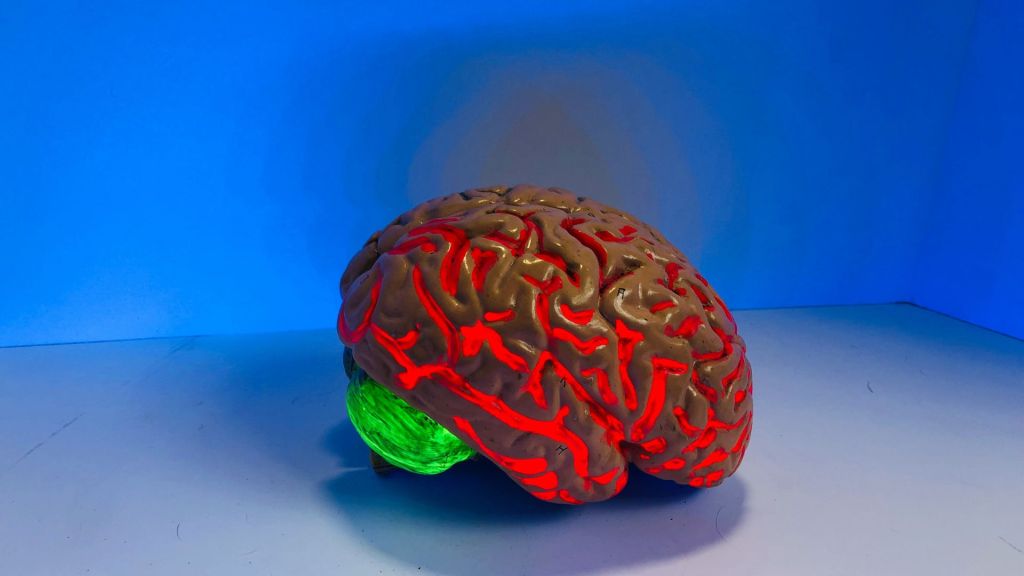By Aria Brent
AFRO Staff Writer
abrent@afro.com
Alzheimer’s Disease (AD) is an illness that takes a village to tackle. In its most advanced stages it can be hard on a patient and their care team.
According to the National Institute on Aging, “Alzheimer’s disease is a brain disorder that slowly destroys memory and thinking skills and, eventually, the ability to carry out the simplest tasks.”

CREDIT: Unsplash.com Photo / Natasha Connell
Alzheimer’s Disease is a form of dementia that ocurs after a series of amyloid and tau proteins begin to build up in the brain, toxify nerve cells, kill them and ultimately result in memory loss issues, according to Dr. Doug Scharre, a neurologist at the Ohio State University Wexner Medical Center. Scharre leads the memory disorder center and in honor of World Alzheimer’s Month, he spoke with the AFRO about a few habits that can be practiced to help prolong or combat the effects of AD.
Treat any breathing problems you may have
The brain needs a constant supply of good air. Going outside for fresh air and getting any breathing or lung related issues treated is vital when trying to assure the brain has good airflow.
“The brain needs good oxygenation, without it it doesn’t function well,” said Scharre. “If you have a lung problem or if you have sleep apnea you should get that treated. Anything that tries to help improve the oxygen flow to the brain is going to be good.”
Eat a healthy diet
Scharre noted that a healthy diet is vital to preserving the brain’s health. He shared that diets that are heavy in fresh fruits and vegetables are best and making sure you eat a well balanced meal that provides you with all the necessary vitamins is a must.
“Diet is very important. The most brain healthy diets that we know of are typically like the Mediterranean diets and they consist of lots of fruits and vegetables,” he said. “There isn’t as much red meat and there’s a little bit more fish. You shouldn’t eat a lot of animal fats and try to have less processed sugars. The natural sugars in fruit are fine to enjoy.”
The memory loss expert went on to note that typical diets that are consumed in the Black community can be harmful to the brain and contribute to the likelihood of Alzheimer’s disease developing in people who have a family history of the disease.
“If you’re at risk for Alzheimer’s and you have high cholesterol, there’s some data that suggest increasing activity once you reach midlife to try and help reduce the amyloid proteins from building up in the brain,” he said. “Some diets, particularly African-American diets and other minority diets have been found to be tied to increased rates of Alzheimer’s and part of that is thought to be related to differences in diet.
Physical interaction and activity
Activities that stimulate the mind and the body are vital when warding off Alzheimer’s. The veteran neurologist explained that physical activity and interactive activities are a great way to keep the brain stimulated and to keep the body moving. He suggests things such as in-person conversations, working out and learning new hobbies to help keep the brain active and engaged.
“Other things that help the brain are physical exercise, it’s a wonderful brain activity. Socialization is a wonderful whole brain activity as well. If you don’t use it, you lose it so if you don’t use your muscles, they become weak–same thing with your brain,” Scharre explained. “If you’re just sitting there watching TV, it might be entertaining but it isn’t always stimulating to the brain. However, socialization is great because you get out and you talk to people.”
“Get out and talk to people, that’s some form of brain stimulation. Learn to play the piano or learn a new language or write poetry. All those things are great activities for keeping the brain sharp.”
The post Neurologist speaks on fighting Alzheimer’s Disease with diet and exercise appeared first on AFRO American Newspapers.












